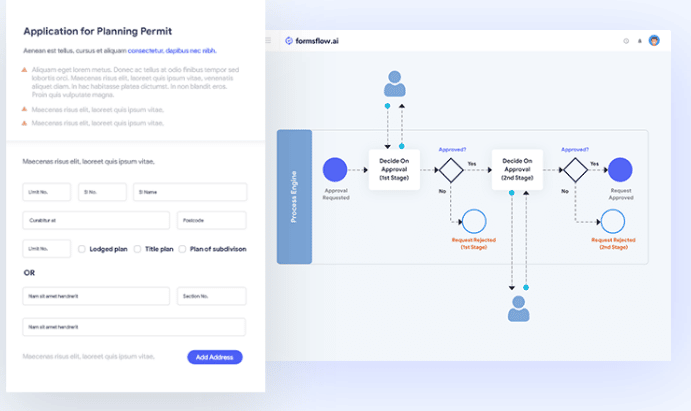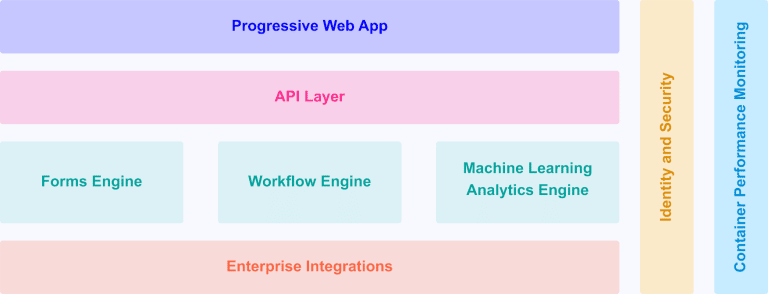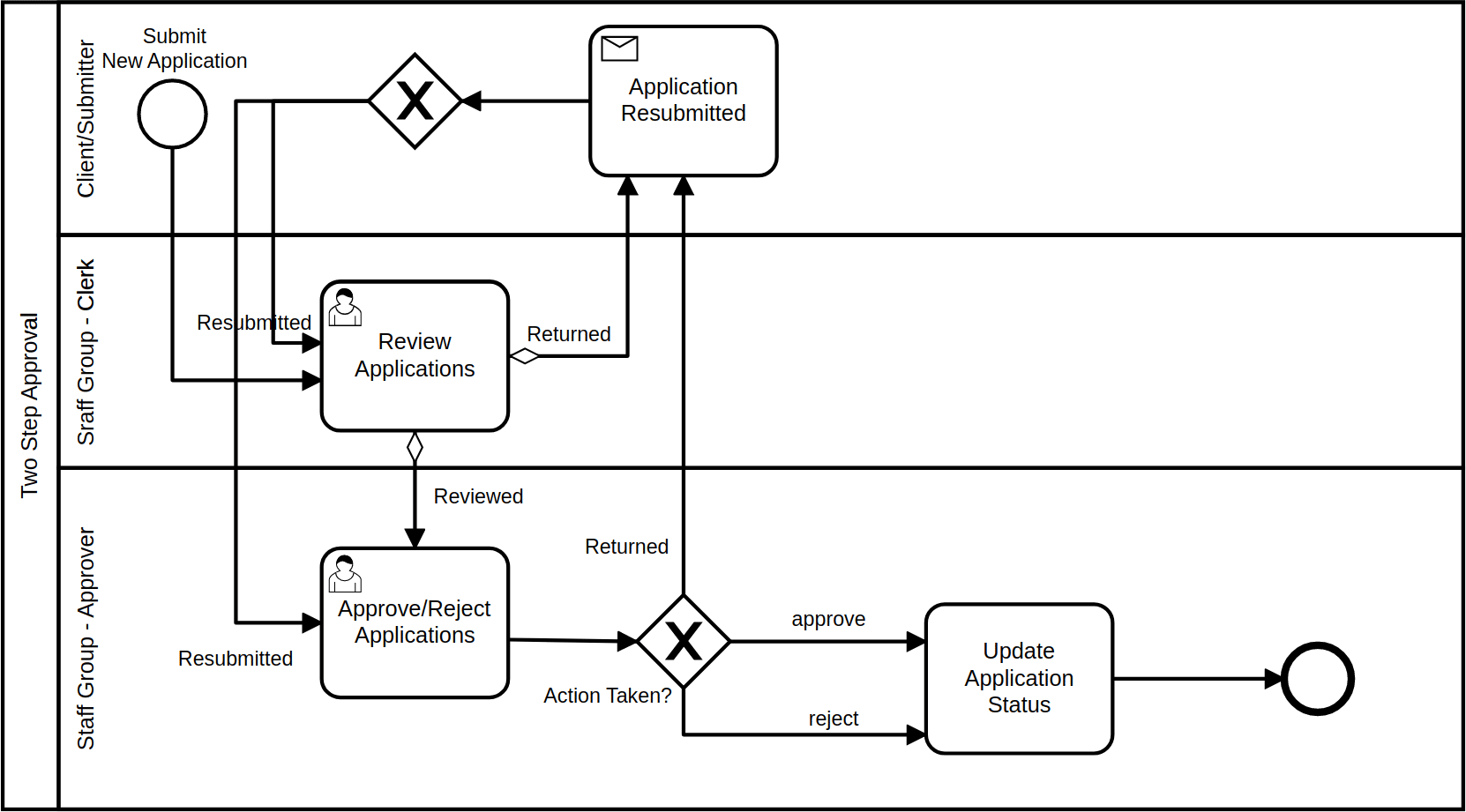18 Feb 2022 Public Sector Warms to Open-Source and Low-Code Solutions
Flexible, drag-and-drop platforms help regular users take over programming tasks, allowing quick and nimble responses to ever-changing conditions and regulations.

With programmers scarce and constant change becoming the norm, the public sector is increasingly turning to open-source, low-code solutions in order to provide flexible and targeted services for citizens.
Victoria-based AOT Technologies has embraced the movement with its drag-and-drop formsflow.ai platform. It’s a completely free and open-source framework that integrates intelligent forms, decision-making workflows, and powerful analytics.
Just about anywhere you’d use a paper form you can use formsflow.ai’s integrated online solution. For instance, if you work at city hall, formsflow.ai would be a great way to create online applications for everything from business licenses to building permits.
And as the Covid-19 situation has shown, both rules and conditions can change rapidly, which means formsflow.ai has been particularly useful for the provincial frontline agency Service BC as it navigated changing demands and requirements.
Also, many government jurisdictions must abide by rules on where data has to reside. Using formsflow.ai means you’re not locked into where a software-as-a-service (SaaS) solution provider decides it wants to house your data. Plus containerization lets you deploy on prem or in the cloud, whichever you prefer.
ON THE FRONT LINE
The low-code philosophy behind formsflow.ai means that instead of working your way through long development cycles, you can get your business users to do a lot of creation and modification on their own.
AOT is particularly proud of its work with the British Columbia government. Speaking at LowCodeCon 2021, Karim Gillani, a senior digital services architect with Service BC, discussed how AOT’s formflow.ai allowed the frontline agency to respond quickly to changing conditions.
Staff who aren’t computer programmers in the traditional sense can make crucial changes in a timely fashion.
Karim also noted that even when developers are needed down the road, low-code platforms can nail down the business case for a particular solution, essentially providing an MVP that the developers can expand upon.
But a lot of the time you can rely on the very people who regularly use the system to also update it. Karim noted that people in the office who like creating sophisticated Excel macros are also the kind of people who are likely candidates for creating and modifying forms, workflows, and analytics.
Combining top-notch open-source solutions, formsflow.ai offers a comprehensive and integrated suite to create and modify forms, workflows, and dashboards.
TOP OF THE CROP
The formsflow.ai user interface (UI) brings together components that are available in open-source versions:
- Form.io for its form design
- Camunda for its workflow mapping
- Redash for data analytics and dashboard
- Keycloak for single sign-on (SSO)
No licensing is required to use formsflow.ai as it’s open source, and it’s easy to evaluate. You can download the code from AOT’s GitHub repository. If you like what you see, you can then implement formsflow.ai in a production environment on your own or with the help of integration specialists.
DON’T REINVENT THE WHEEL
As AOT architect Chris Robinson notes, developers often “reinvent the wheel” when they build new applications. Building from scratch takes time and money. Alternatively, commercial off-the-shelf software can be cheaper at first, but may demand expensive licensing fees and may be too inflexible to do exactly what you want, when you want.
The formsflow.ai solution likely involves tech professionals for the initial installation, but after that it’s the business users that do the coding.
AOT’s solution is a great remedy for organizations who still feel gaps after they’ve accumulated numerous single-purpose and siloed applications. By using flexible software, organizations don’t have to buy or develop yet more siloed applications.
Creating workflows to associate with your self-designed forms is a drag-and-drop effort.
With formsflow.ai you can quickly and easily create online forms using a low-code design interface that lets you incorporate numerous features such as data validation, conditional fields, file uploads, and signatures.
You can then use an industry-leading BPMN workflow engine to design and deploy business processes that are both automated and human-centric.
And you can derive important data such as how many forms are at what stage of processing or get a sentiment analysis of users by checking formsflow.ai’s customizable dashboards.
Meanwhile, the built-in identity management offered by formsflow.ai integrates identity management for SSO using such protocols as OpenID Connect, SAML, and OAuth 2.0.
And in a particularly exciting development, you can design up-to-the-minute robotic process automation (RPA) to seamlessly plug bots into your business processes. As a partner with RPA vendor Robocorp, AOT is particularly happy to offer a sophisticated open-source development platform for automating manual tasks.
MAKING THE LEAP
Not only does formsflow.ai integrate the best and the brightest of open-source software, it’s easier to integrate formsflow.ai to your legacy systems than it would be with a commercial off-the-shelf offering. This makes formsflow.ai particularly useful if you’re replacing old systems bit by bit.
And with its support for Kubernetes platforms like RedHat OpenShift, you can make the transition from on premises to cloud providers, if that’s the route you choose, at a pace that suits you.
With no licensing required and greatly reduced development effort and cost, it’s easy to change screens, workflows, and business rules. Plus you’re the one who owns and controls your own data and the software that uses it.
With such great power and flexibility, public sector clients are likely to continue their switch to quick and nimble open-source, low-code solutions from larger, more cumbersome proprietary systems.
- The Open Source Initiative has lots of information on open-source practice and philosophy
- To learn more about how Service BC used formsflow.ai to quickly adapt its workflows, watch this video from LowCodeCon 2021 or check out this article
- You can assign different users different powers in formsflow.ai, as this video illustrates, from the public end user to the form and workflow designers
- For your own demo, email info@formsflow.ai
- And here’s a reminder of AOT’s GitHub repository that contains all this goodness




